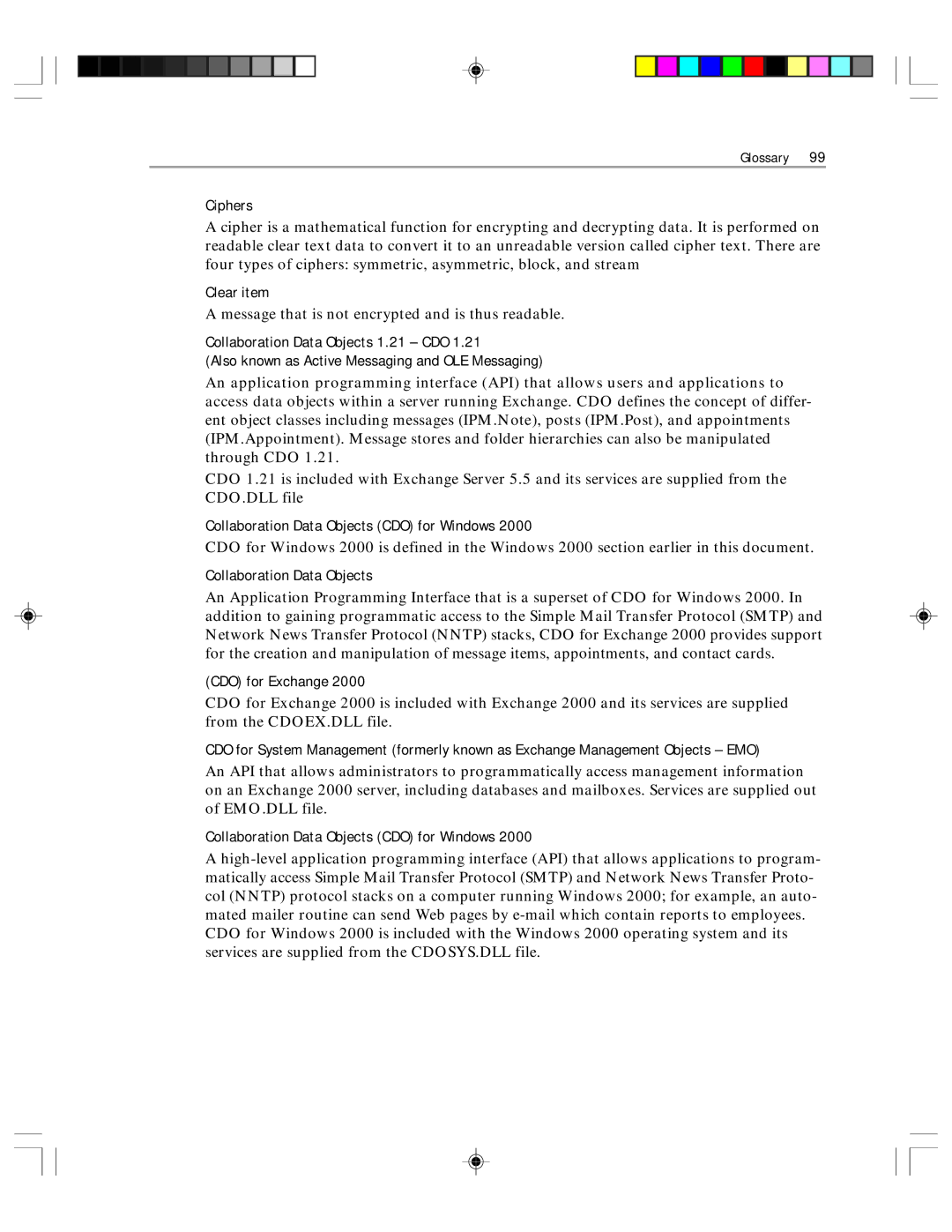
Glossary 99
Ciphers
A cipher is a mathematical function for encrypting and decrypting data. It is performed on readable clear text data to convert it to an unreadable version called cipher text. There are four types of ciphers: symmetric, asymmetric, block, and stream
Clear item
A message that is not encrypted and is thus readable.
Collaboration Data Objects 1.21 – CDO 1.21
(Also known as Active Messaging and OLE Messaging)
An application programming interface (API) that allows users and applications to access data objects within a server running Exchange. CDO defines the concept of differ- ent object classes including messages (IPM.Note), posts (IPM.Post), and appointments (IPM.Appointment). Message stores and folder hierarchies can also be manipulated through CDO 1.21.
CDO 1.21 is included with Exchange Server 5.5 and its services are supplied from the CDO.DLL file
Collaboration Data Objects (CDO) for Windows 2000
CDO for Windows 2000 is defined in the Windows 2000 section earlier in this document.
Collaboration Data Objects
An Application Programming Interface that is a superset of CDO for Windows 2000. In addition to gaining programmatic access to the Simple Mail Transfer Protocol (SMTP) and Network News Transfer Protocol (NNTP) stacks, CDO for Exchange 2000 provides support for the creation and manipulation of message items, appointments, and contact cards.
(CDO) for Exchange 2000
CDO for Exchange 2000 is included with Exchange 2000 and its services are supplied from the CDOEX.DLL file.
CDO for System Management (formerly known as Exchange Management Objects – EMO)
An API that allows administrators to programmatically access management information on an Exchange 2000 server, including databases and mailboxes. Services are supplied out of EMO.DLL file.
Collaboration Data Objects (CDO) for Windows 2000
A
CDO for Windows 2000 is included with the Windows 2000 operating system and its services are supplied from the CDOSYS.DLL file.
